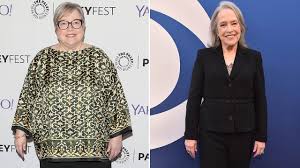
The fluorescent hum of the soundstage felt like the steady, comforting thrum of a familiar heartbeat. This was Stage 12 at CBS Studio Center, a place where legends were quietly, methodically, made. For years, it had been home to Matlock, the quintessential folksy courtroom drama, a warm blanket of predictable justice and charming southern wit. On this particular day, "md07" – early March, 2007, in a hypothetical world where Matlock had enjoyed an improbable revival or a spiritual successor – a different kind of energy crackled in the air. A seismic shift was about to occur, not in the script, but in the very atmosphere of the show.
The set, a meticulously crafted replica of a North Carolina courthouse, was a monument to established comfort. The oak paneling gleamed with years of polish, the jury box seats had seen countless extras shift restlessly, and the judge's bench stood as a silent, imposing sentinel of law and order. The crew, a tight-knit family, moved with an practiced ballet of efficiency – cables snaking, lights adjusting, the soft rustle of scripts being prepped. Andy Griffith, if still at the helm in this imagined scenario, would likely have been in his trailer, perhaps whistling a quiet tune, embodying the gentle wisdom that was the show's enduring appeal. Matlock was a predictable dance, a comforting routine, a world where the good guys always won, and the truth, often obscured by small-town deceit, always found its way to the surface, usually with a clever, folksy "gotcha!" moment.
Then, she arrived. Kathy Bates.
The contrast was immediate, almost palpable. Matlock was a warm, inviting porch swing on a summer evening; Kathy Bates was a category five hurricane with a Mensa membership. She didn't just walk onto the set; she descended upon it. Her reputation, a formidable tapestry woven from Oscar-winning performances in "Misery," "Dolores Claiborne," and a litany of other roles showcasing raw power and profound depth, preceded her like a low, resonant hum. There was no boisterous greeting, no effusive pleasantries. Instead, a quiet hush seemed to fall over the usual chatter. Crew members, usually unfazed by celebrity, paused, their eyes following her as she navigated the labyrinth of equipment.
Her presence wasn't about ego; it was about gravity. She moved with an innate sense of purpose, her gaze sharp, intelligent, missing nothing. Dressed in surprisingly unglamorous, practical clothing for the table read – a sensible blazer, dark trousers – she nonetheless exuded an undeniable force field. One could almost feel the mental gears turning, the analytical mind already dissecting character motivations, subtext, and potential performance nuances. She wasn't just joining a show; she was approaching a craft.
The table read itself became a masterclass. As the script was distributed, depicting a powerful, no-nonsense federal judge – a role conceived specifically to integrate her formidable talent into the Matlock universe – her voice, when it came, was a revelation. It wasn't the sweet tea cadence of Matlock's world, but a clear, commanding instrument, capable of both cutting authority and surprising warmth. She imbued her lines not just with meaning, but with history, with unspoken gravitas that instantly elevated the material. The other actors, seasoned professionals though they were, visibly leaned in, captivated. A subtle tension, an invigorating sense of "let's see what happens," replaced the show's usual comfortable rhythm.
Behind the scenes, the dynamic shifted. Directors found themselves discussing scenes with a new level of intensity, knowing they had an actor who would not only deliver, but interpret and challenge in the most productive way. Writers, too, found their pens sharper, crafting dialogue that could truly withstand the weight of her delivery. It wasn't about changing Matlock's core, but about adding a layer of rich, dark chocolate to the familiar vanilla. She brought an unexpected edge, a delightful unpredictability that the long-running show, even in its hypothetical revival, sorely needed.
Her joining Matlock wasn't just a casting coup; it was an artistic collision. It was the fusion of Hollywood's unvarnished power with television's enduring comfort. It promised to take the familiar moral dilemmas and courtroom theatrics and imbue them with a new kind of intellectual rigor and emotional depth. Behind the scenes, it was a reminder that even in the most established of worlds, the unexpected arrival of a truly great talent can reignite the spark, pushing everyone to reach just a little bit higher, creating a television experience that was both comforting and utterly compelling. As the fictional "md07" faded, the stage was set, not just for another episode, but for a fascinating evolution.
